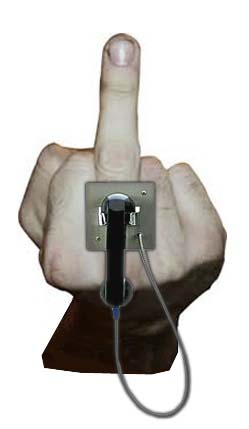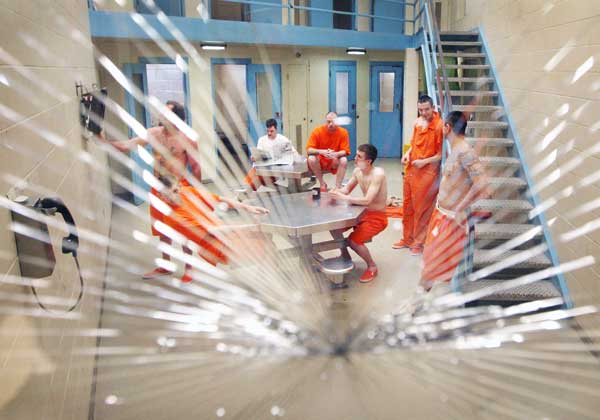 A former inmate sizes up detention products, #3 in a casual series.
A former inmate sizes up detention products, #3 in a casual series.
Upselling Prison: accessories, upgrades, add-ons, telecoms, and salespersons of the detention supply industry.
 According to the Pew Public Safety Performance Project and the Bureau of Justice Statistics, 1 in 35 adult residents of the US are currently either incarcerated or under correctional supervision (parole or probation). In 1990, that number was 1 in 77. Nationally, America spends billions on corrections, and the money being made by detention profiteers is astronomical. One particularly golden calf has been inmate telecommunications, especially now that the corrections industry is undergoing a “technological renaissance.”
According to the Pew Public Safety Performance Project and the Bureau of Justice Statistics, 1 in 35 adult residents of the US are currently either incarcerated or under correctional supervision (parole or probation). In 1990, that number was 1 in 77. Nationally, America spends billions on corrections, and the money being made by detention profiteers is astronomical. One particularly golden calf has been inmate telecommunications, especially now that the corrections industry is undergoing a “technological renaissance.”
(Prison Voice Biometrics anyone?)
 Much has been written about the contempt the prison telecom industry routinely demonstrates for families of the incarcerated by charging crushingly inflated rates for collect calls home. Still, in California, for example, the Public Utilities Commission lacks oversight of jail and prison phone contracts and nationwide the FCC is only now taking notice of high rates charged for calls originating in state and federal facilities. According to Prison Phone Justice.org, inmate phone contracts in all but 9 states are still based on a “commission” model where the service provider pays a portion of its profits to the contracting facility as a kickback for accepting their bid (this chart shows some of the worst offenders). I don’t even want to think about private and corporate-owned detention centers, where the profits extracted from those in need of human contact is obscene. Read more
Much has been written about the contempt the prison telecom industry routinely demonstrates for families of the incarcerated by charging crushingly inflated rates for collect calls home. Still, in California, for example, the Public Utilities Commission lacks oversight of jail and prison phone contracts and nationwide the FCC is only now taking notice of high rates charged for calls originating in state and federal facilities. According to Prison Phone Justice.org, inmate phone contracts in all but 9 states are still based on a “commission” model where the service provider pays a portion of its profits to the contracting facility as a kickback for accepting their bid (this chart shows some of the worst offenders). I don’t even want to think about private and corporate-owned detention centers, where the profits extracted from those in need of human contact is obscene. Read more



